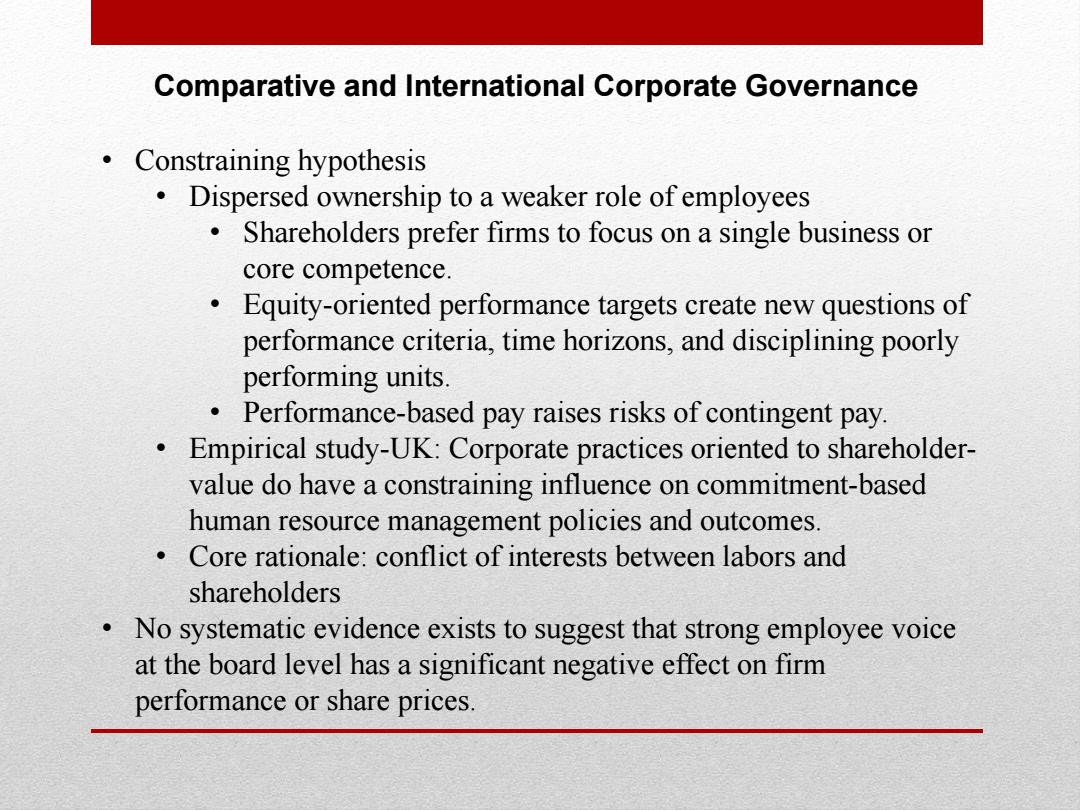正在加载图片...

Comparative and International Corporate Governance Constraining hypothesis Dispersed ownership to a weaker role of employees Shareholders prefer firms to focus on a single business or core competence. Equity-oriented performance targets create new questions of performance criteria,time horizons,and disciplining poorly performing units. Performance-based pay raises risks of contingent pay. Empirical study-UK:Corporate practices oriented to shareholder- value do have a constraining influence on commitment-based human resource management policies and outcomes. Core rationale:conflict of interests between labors and shareholders No systematic evidence exists to suggest that strong employee voice at the board level has a significant negative effect on firm performance or share prices.• Constraining hypothesis • Dispersed ownership to a weaker role of employees • Shareholders prefer firms to focus on a single business or core competence. • Equity-oriented performance targets create new questions of performance criteria, time horizons, and disciplining poorly performing units. • Performance-based pay raises risks of contingent pay. • Empirical study-UK: Corporate practices oriented to shareholder- value do have a constraining influence on commitment-based human resource management policies and outcomes. • Core rationale: conflict of interests between labors and shareholders • No systematic evidence exists to suggest that strong employee voice at the board level has a significant negative effect on firm performance or share prices. Comparative and International Corporate Governance